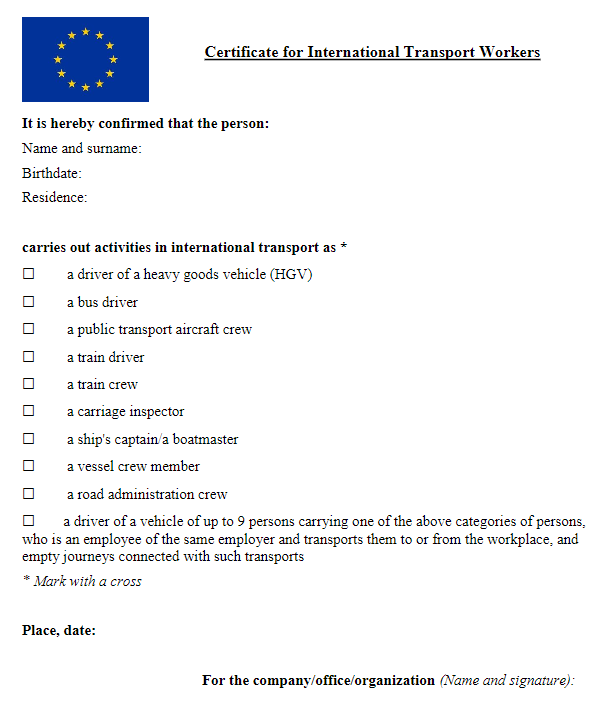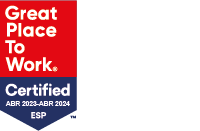EU Update: Border Crossing & Essential Documentation for International Drivers
The European Union has recently published a paper which acts as a guideline for border management measures to protect health and safety and ensure the availability of goods and essential services across the European Union.
In summary, the paper covers the following key points in relation to movement and documentation.
Movement:
- The Guidelines for border management measures to protect health and ensure the availability of goods and essential services adopted by the European Commission on 16 March 2020, stress the principle that all EU internal borders should stay open to freight and that the supply chains for essential products must be guaranteed.
- In order to preserve the EU-wide operation of supply chains and ensure the functioning of the Single Market for goods, wherever internal border controls exist or have been introduced Member States are requested to designate immediately all the relevant internal border-crossing points of the trans-European transport network (TEN-T) and additional ones to the extent deemed necessary, as “green lane” border crossings –for land (road and rail), sea and air transport.
- Going through these “green lane” border crossings, including any checks and health screening of transport workers, should not exceed 15 minutes on internal land borders. The “green lane” border crossings should be open to all freight vehicles carrying any type of goods.
- Member States should act immediately to temporarily suspend all types of road access restrictions in place in their territory (week-end bans, night bans, sectoral bans, etc.) for road freight transport and for the necessary free movement of transport workers.
Transport workers, irrespective of their nationality and place of residence, should be allowed to cross internal borders. Restrictions such as travel restrictions and mandatory quarantine of transport workers, should be waived, without prejudice for competent authorities to take proportionate and specifically adapted measures to minimize the risk of contagion.
- Workers should not be prevented from crossing internal borders to carry out their transport functions
Documentation (Certification):
- International certificates of professional competence should be sufficient to prove that a worker is actively engaged in international transport.
- In the absence of a internationally recognized certificate (e.g. van drivers) or in the case a certificate has expired, Member States may require a letter from the workers employer confirming the status of the worker, supported by the workers identification papers.
- The European Commission is assisting this process by providing a standard template letter (which is valid for UK transport companies during the Brexit transition period), please find an example of this below which can be used as a template for drivers travelling aborad:
Generic Certification (example):
Full details of the paper can be found using the following link:
If you require any information, then please do not hesitate to contact us on 0845 313 2212.





